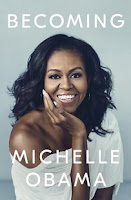I enjoyed this new offering by Jane Harper, and thought it was as good as The Dry and The Lost Man. It’s a similar style story, with a historical incident that has shaped a community, and a current crime that has occurred. In this case, Kieran has returned to his childhood home in a coastal Tasmanian town with his girlfriend and infant daughter, where the guilt that he carries resurfaces over the death of two men in a major storm years ago. When a girl is found murdered on the beach, tensions in the town start to rise, as people start to remember the past, and point fingers at each other. Harper is skilled storyteller, with realistic and multi-faceted characters, and a depth of narrative.
The Dictionary of Lost Words, Pip Williams

This wonderful debut novel charts the history of the creation of the first Oxford English Dictionary through the eyes of Esme, the young daughter of one of the lexicographers. As a child she spends her time on the floor the scriptorium, where words are sorted and gathered. As the grows up, she realises there are words not included in the dictionary, those considered vulgar but also many that describe the experiences of everyday women. Williams has skilfully interwoven much of the actual history of the dictionary compilation, including the people involved, with the life experience, joys and struggles of Esme over the decades it takes to publish. What I enjoyed about this book is that is wasn’t predictable. There were a couple of points where I thought I could tell she would take the narrative, but it turned another (and in my opinion) better way. An impressive, enjoyable and insightful book.
Becoming, Michelle Obama
A couple of friends mentioned they enjoyed this and I was pleased to finally get to it. Broken into three sections, Michelle Obama outlines her childhood (Becoming Me), her relationship with Barack (Becoming Us) and the years as First Lady (Becoming More). I knew very little details about her, for he came to office when I was in the midst of baby years, and it wasn’t really on my radar. She’s given a relatively open and insightful account, with details of her own childhood, loving family and early working years. She shares about their marriage, and the ups and downs of campaigning and life in the White House. It is generally gracious, with overwhelmingly positive comments about all her friends and family. It’s not particularly partisan, although as you might expect there are some digs at Republicans, especially Trump. I enjoyed the insight into life in the White House, and how they tried to care for their girls while living there. I appreciated some of her observations about people and relationships, especially marriage: “I understand now that even a happy marriage can be a vexation, that it’s a contract best renewed and renewed again, even quietly and privately - even alone.” Alongside the story, she weaves in her thoughts on race, gender, poverty, education, politics and numerous other topics. Keeping in mind this is an autobiography rather than an analysis, this is still an interesting and thought-provoking read no matter what side of politics you are on.





